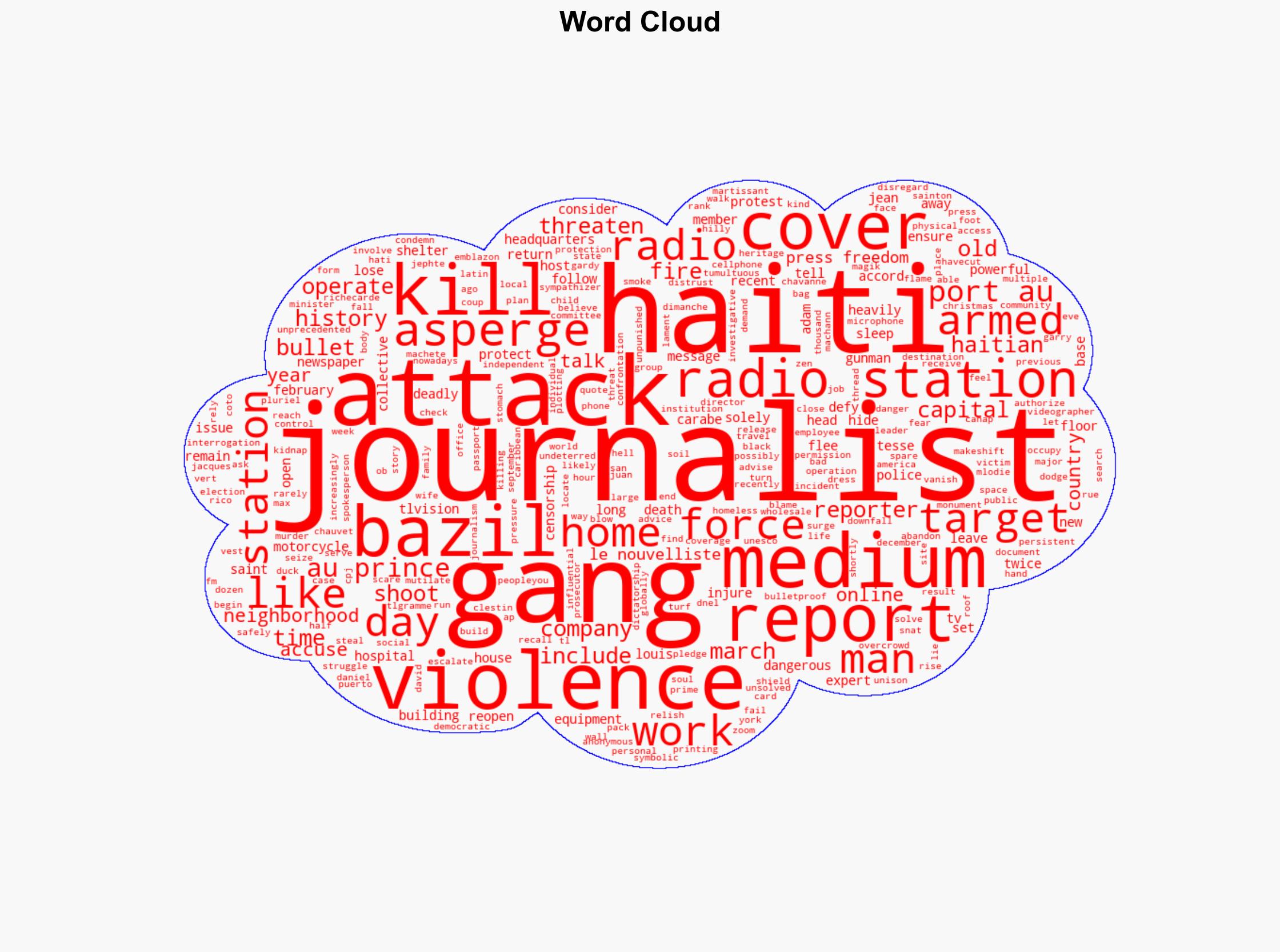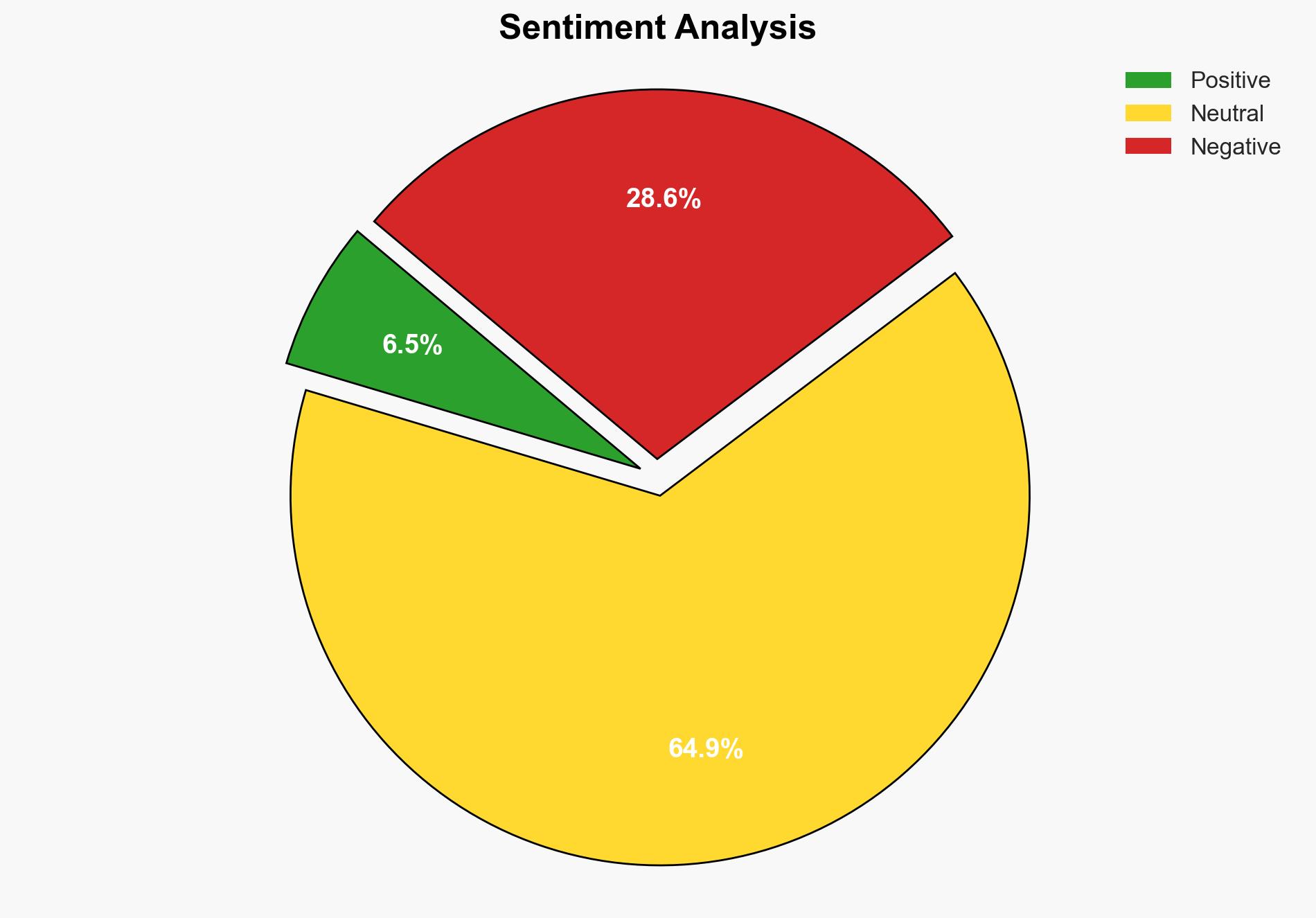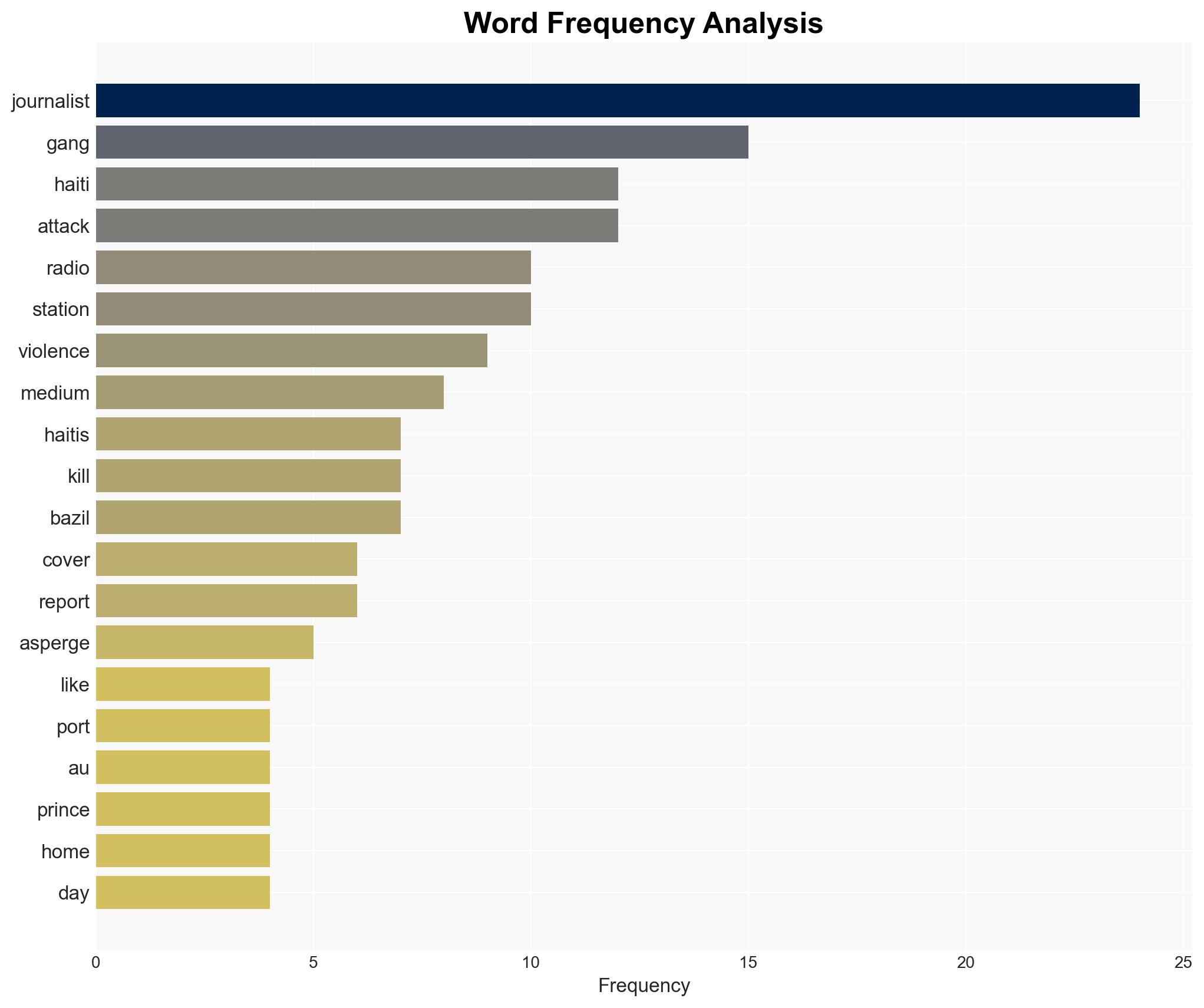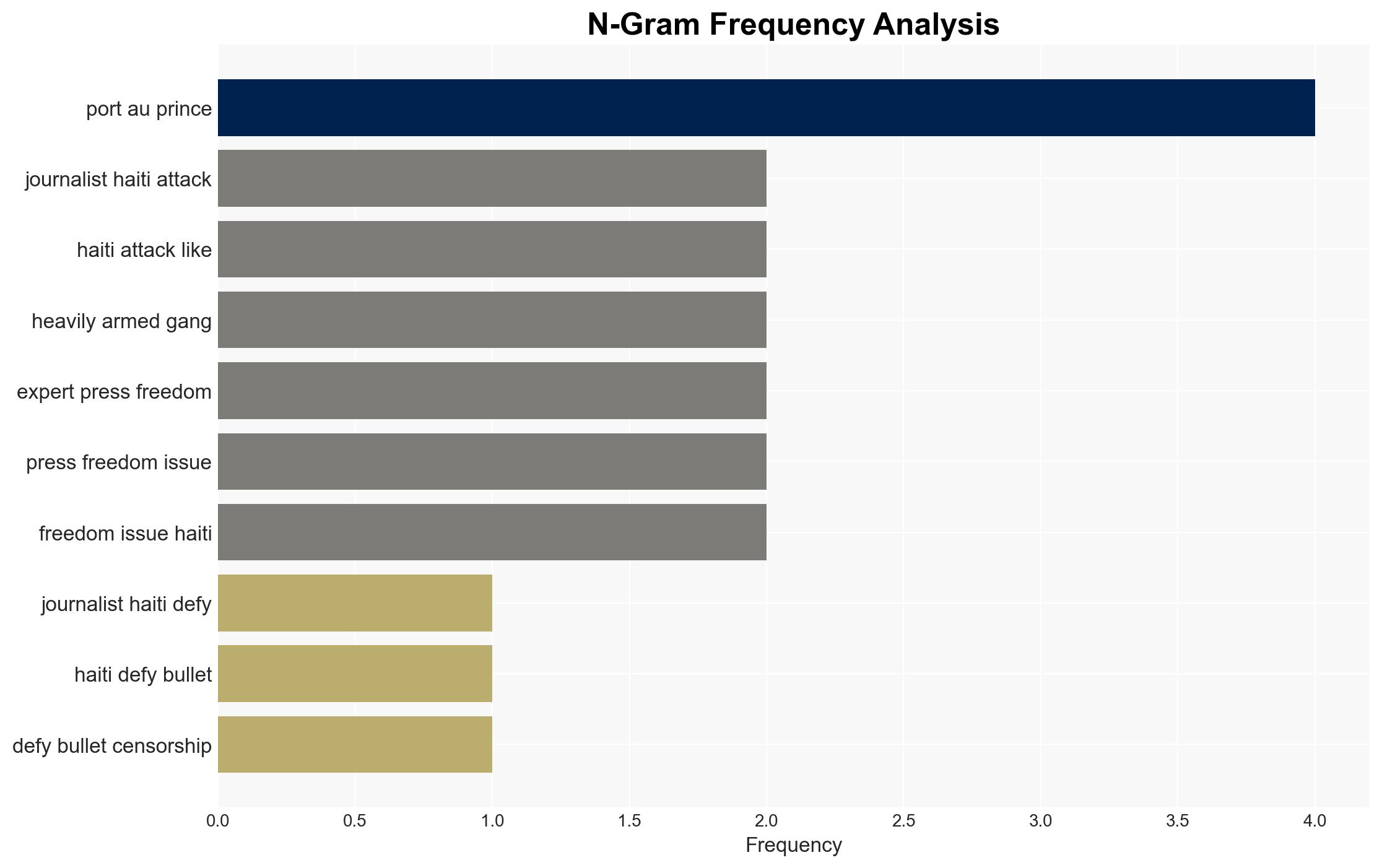Journalists in Haiti defy bullets and censorship to cover unprecedented violence – ABC News
Published on: 2025-04-03
Intelligence Report: Journalists in Haiti defy bullets and censorship to cover unprecedented violence – ABC News
1. BLUF (Bottom Line Up Front)
The situation in Haiti has become increasingly perilous for journalists, who face threats from heavily armed gangs. These gangs have taken control of significant areas, including Port-au-Prince, leading to unprecedented violence and censorship. Journalists like Jean Jacques Asperge and Jephte Bazil continue to report despite threats to their lives and equipment. The implications of this violence extend beyond press freedom, potentially destabilizing the region further. Immediate action is required to protect journalists and restore order.
2. Detailed Analysis
The following structured analytic techniques have been applied for this analysis:
General Analysis
The analysis reveals a systematic targeting of journalists by gangs in Haiti. The gangs have issued warnings and carried out attacks on media houses, forcing closures and leading to self-censorship among journalists. The violence has forced many, including Asperge, to flee their homes and work under constant threat. The gangs’ control over Port-au-Prince and other areas has led to a breakdown in law and order, severely impacting the ability of journalists to report freely and safely.
3. Implications and Strategic Risks
The ongoing violence poses significant risks to national security and regional stability. The control exerted by gangs over key areas threatens the rule of law and governance in Haiti. The targeting of journalists undermines press freedom, a critical component of democratic societies. The economic impact is also considerable, as instability deters investment and disrupts economic activities. The situation could lead to increased migration pressures as individuals flee violence.
4. Recommendations and Outlook
Recommendations:
- Enhance security measures for journalists, including providing protective equipment and safe zones.
- Engage with international organizations to apply diplomatic pressure on Haitian authorities to restore order.
- Support initiatives aimed at strengthening local law enforcement capabilities to combat gang violence.
- Encourage media organizations to collaborate on safety protocols and share resources to protect journalists.
Outlook:
In the best-case scenario, increased international intervention and local reforms could stabilize the situation, allowing journalists to operate safely. The worst-case scenario involves further escalation of violence, leading to a complete breakdown of media operations and increased regional instability. The most likely outcome, without significant intervention, is a continued struggle for journalists, with sporadic improvements in safety and ongoing threats from gangs.
5. Key Individuals and Entities
The report mentions significant individuals such as Jean Jacques Asperge and Jephte Bazil, who are directly affected by the violence. Other individuals include David Adams, who provides insights into press freedom issues, and Max Chauvet, who highlights the challenges faced by media organizations. These individuals are central to understanding the current situation and the risks involved.





